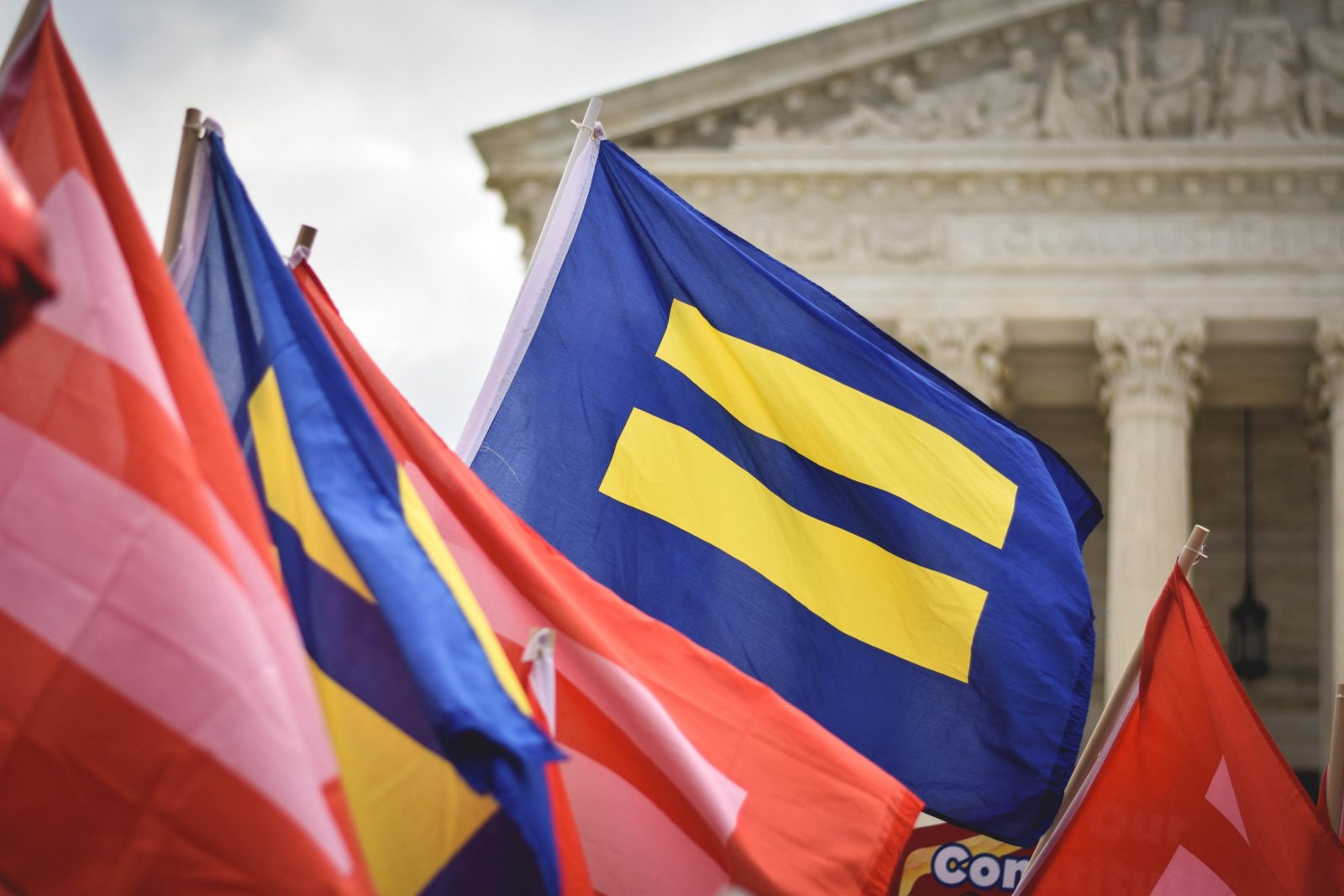
The Fall 2019 issue of Information Governance World featured an article by Ilona Koti, Director of Governance Products for Montana & Associates, an Access Company. TRANSitory RECORDS discusses the legal precedence regarding vital records for transgender individuals and ways to improve both the record keeping process while and trans rights.
Birth Certificates & Key Transgender Statistics
What’s in a name – a frequently asked question for many individuals that have undergone/are considering gender reassignment, or do not feel associated with a gender at all. Yet in order for a transgender person to legally transition to a new identity, their legal name and/or gender will need to be altered on several types of government and state-issued identification documents. However, altering a state-issued birth certificate can be extremely challenging, if not legally permissible under current laws for several US states. While altering a vital record, from a records management perspective, may seem to defeat the purpose of maintaining accurate historical and statistical data, the ethical implications of not revising or amending a birth certificate for a transgender person can in-fact be a matter of life-or-death. Here are some rules and considerations to remember when considering how to manage records related to transgender individuals.
Law & Disorder
Key US Laws Supporting Transgender Inclusion
While many laws and regulations apply to transgender individuals, particularly at the state/local-level, the following are key pieces of US federal legislation providing support for the trans population:
- US Constitution – 14th Amendment – Equal Protection Clause – Article 1, Section 9, Clause 8
- Lists trans status as a potential disability
- Title VII-Civil Rights Act of 1964
- Grants transgender people the ability to utilize bathrooms corresponding with their appropriate gender
- State’s rights allow for “Bathroom Bills.” It is illegal in North Carolina to use a public bathroom not corresponding with the “biological sex” listed on an individual’s birth certificate; several other states have proposed (but not yet passed) similar legislation
- Title IX-Civil Rights Act-1964
- Bans discrimination of transgender individuals in schools receiving federal funding
- Family Educational Rights & Privacy Act (FERPA)
- Educational records must be kept private. Students can petition a school to change their name and/or gender-marker on school records
- Individuals with Disabilities Education Act (IDEA) and Section 504-Rehabilitation Act of 1973
- Some transgender students suffering from gender dysphoria may qualify for disability status based upon recent federal rulings
- Health Insurance Portability & Accountability Act (HIPAA)
- Medical providers must keep patient records private
Each state/local jurisdiction(s) should have additional specific legislation regarding transgender status and one’s ability to alter birth certificates.
The More Things Change
Logistical Considerations For Altering Birth Certificates
Although laws may dictate how/what can be changed on a birth certificate, there are several logistical considerations for altering birth certificates in general:
- Original vital records (e.g. birth certificates), are also considered historical records providing pertinent statistical data, and are intended to not be altered
- Birth certificates that have been changed will typically have the word “amended” displayed on the updated document (e.g. common for adopted individuals)
- Many states allow for additional information to be entered on a birth certificate form/application, (e.g. parent’s occupation, ethnicity, etc.) for statistical purposes without actually printing the information on the birth certificate itself
- When changing a birth certificate, ideally name/parents/gender, etc. will be changed at the same time to avoid additional costs and/or processing time
- A person may wish to change their gender and/or name more than once, and would need to reapply for another birth certificate
Rights are not a matter of numbers – and there can be no such thing, in law or in morality, as actions forbidden to an individual, but permitted to a mob ~ Ayn Rand
Key Statistics Regarding Records for Transgender Individuals
In 2013, the US Social Security Administration updated Social Security card requirements to accommodate transgender applicants, primarily due to alarming responses provided by transgender participants in a 2011 US government study, the National Transgender Discrimination Survey (NTDS). The study revealed that transgender individuals experienced an escalated amount of discrimination and physical violence, due to the name and/or gender listed on critical/vital identification documents not matching existing “social stereotypical expectations” of their gender identity .
The following are key statistics and facts regarding the documentation process relevant to transgender individuals:
- Only 135,367 Social Security applicants changed their name to the opposite gender; only 30,006 people have ever changed their gender-marker – New York Times (2015)
- 11% of transgender people have their preferred identity and gender-marker on all identity documents and official records, a decrease from 21% in 2011 (NTDS) – US Transgender Survey (2015)
- 33% have not been able to update any identity documents – NTDS (2011)
- 33% that used documents not matching their “gender”, experienced a negative situation/effect – NTDS (2011)
- 60% of trans people reported experiencing discrimination when applying for a name or gender change – NTDS (2011)
- Surgical requirements for transgender individuals applying for a birth certificate (and other identification documents) will vary by state; some states will require surgery and/or hormone treatments; other states only require a doctor’s note stating that “appropriate clinical treatment for gender transition” was obtained
- Tennessee’s Vital Records Act states that, “the sex of an individual shall not be changed on the original certificate of birth as a result of sex change surgery,” despite allowing for: legal name changes, adoption and changes to listed parents on birth certificates; Idaho and Ohio have similar restrictions
- In Illinois, felony convictions require a 10-year waiting period before a legal name change can be made; other states only prohibit name changes for specific crimes, e.g. fraud and sexual offenses
- Some states (e.g. Michigan), require that fingerprints be included in a name-change petition
- California, and other states, may require a background-check prior to approving a name-change request
- Several states (e.g. Maryland), require an individual petitioning for a name change, to publicly publish the request consecutively (three consecutive weeks in Illinois), (e.g. in a newspaper); other states require that an address is also proved and published
- Originally initiated to prevent criminals from defrauding others under a new name
- Many states require a specified residency period within the state be established, prior to petitioning a name change
- Submitted documentation may also need to be notarized
The following are key statistics regarding further insights into transgender individuals:
- 0.6% of US adults identify as transgender – Williams Institute (2016)
- Current estimated US population is 328.7 million, with 209.1 million adults, thus nearly 1.2 million adult transgender Americans, an increase to 2 million if total US population under age 18 is included
- Transgender people are less likely to report a crime to law-enforcement to avoid providing documentation that may reveal their true identity
- 1-in-10 transgender people were physically attacked in the past year; half of all transgender people are survivors of sexual violence – U.S. Transgender Survey (USTS) (2015)
- The average cost of changing identification documentation ranges upwards of $500 (includes court/newspaper publication fees/related costs, e.g. travel, etc.). Gender reassignment surgery costs range from $20,000 to $40,000+
- 16 states require sexual reassignment surgery to obtain a birth certificate – Movement Advancement Project (MAP) (2019)
- Transgender individuals are four-times more likely to live under the poverty line; 15% of transgender Americans earn less than $10,000 per year – MAP and The Center for American Progress (2015)
- The number of murders of transgender women (primarily African American), significantly increases, after their attackers discover their trans-status
- In 2018, 29 violence-related transgender deaths were documented
- 28% of transgender people that held/applied for a job were either fired, not hired or denied a promotion because of gender identity; 20% experienced housing discrimination – USTS (2015)
- In regard to “Bathroom Bills”, transgender respondents in the USTS (2015) stated that in the past year:
- 9% were denied access to a restroom
- 58% avoided using a public restroom due to fear of confrontation
- 28% limited the amount that they ate or drank to avoid using the restroom
- 41% of transgender people attempted suicide vs. 1.6% of the general population – NTDS (2011)
Improving Vital Record-Keeping Processes for Trans Individuals
With advances in technology, biometrics and multi-factor identification mechanisms, validating one’s “identity” has become faster, easier and more cost effective. Yet, technology is only one part of the equilibrium axis – people and process should be open to change as well. For transgender individuals (and others), implementing some changes to existing vital records request processes could greatly improve the outcome for all participating parties.
The following are some process improvement considerations when requesting alterations to vital records and official identification documents for both records offices and lawmakers:
- Offer electronic-filing options to automate the process as much as possible – minimizing required travel, in-person wait-times and reduced in-person contact
- Utilize automated processes to send system-generated status updates to applicants and provide timely communication, as processing times can be lengthy
- If online processing services are not available, consider offering more comprehensive services at specific location(s) with staff who have received additional training, and are openly willing to assist transgender individuals, in an effort to create a more comfortable experience for both staff and applicants
- Evaluate to what extent additional validation of documentation is needed for a transgender individual (e.g. notarized documents). Can publishing a formal name change request in a public newspaper (along with requiring an address) not only potentially “out” the applicant, but also place the applicant at risk, given the high rates of violence and discrimination against transgender people?
- Consider waiving first-time filing fees (e.g. Connecticut), where petitioners may request that the court fees be waived due to financial hardship
- Update databases and information systems accordingly, to capture additional metadata fields (e.g. updated gender, surrogates, same-sex parents, gender pronouns, etc.)
- Provide educational training/training materials to staff regarding transgender related topics, preparing staff ahead of time, rather than have staff ask applicants potentially inappropriate questions about their gender status/transition. Enforce discrimination policies accordingly
The right to identify our own existence lies at the heart of one’s humanity – District Judge Carmelo Consuelo Cerezo,
The X Factor
Ethical & Moral Considerations For Everyone
Regardless of personal beliefs on transgender individuals, vital records databases and application/alteration processes can be improved as a whole through enhanced automation and data capture. Birth certificates are still based-upon a “traditional” family-status and often omit surrogates, same-sex couples and adoptive parents from being included on the certificate itself. Ideally, vital statistical reporting information would be captured, but allow for an on-demand printing of birth certificates to avoid having an “altered” marker listed on a reissued birth certificate. As information professionals, we are tasked with protecting and preserving the authenticity, integrity and reliability of records on a daily basis; yet with 60% of transgender individuals experiencing discrimination during the application process to alter identification documentation, we seem to be missing the mark on customer satisfaction.
A birth certificate is more than just a vital record to a transgender individual. Officially issued documentation can be life-altering to a trans person, given the high-statistical rates of violence and discrimination against transgender people. As for discrimination, birth certificates were utilized to assist segregating African Americans in the US, who too were once assigned different bathrooms and facilities. Laws and regulations impacting transgender individual’s rights and their ability to alter documentation reflecting their preferred gender-status, will actively continue into the foreseeable future. Until then, the moral obligation is placed upon us to not view transgender individuals as simply either male or as female, but to see them as human beings, and to treat them with the same dignity and respect as any other patron when providing our services.
About the Author:
Ilona Koti, MLS, MS IM, CRM, PMP, CDIA+
Director of Governance Products
Montaña & Associates
Ilona is a former foreign diplomat and an internationally recognized subject matter expert in IG with 25 years of experience in libraries and RIM, expanded to technology, privacy and cyber security. Ilona is a CRM and Project Management Professional (PMP), with a masters of Library Science (MLS) and Information Management (MS IM) from Syracuse University. Ilona is a teaching fellow at the University of Dundee in Scotland and is currently undergoing Doctoral studies in Information Assurance and Visual Classification Technologies. She is also a past president of ARMA International.




